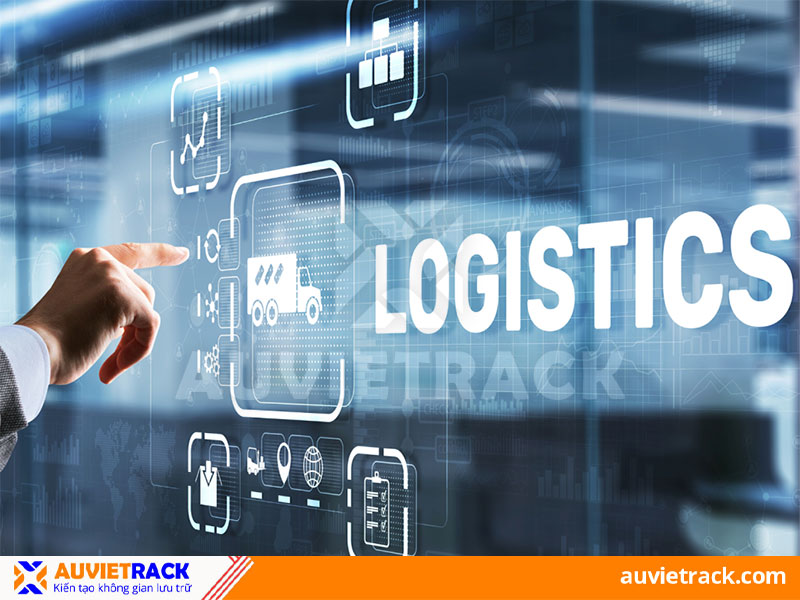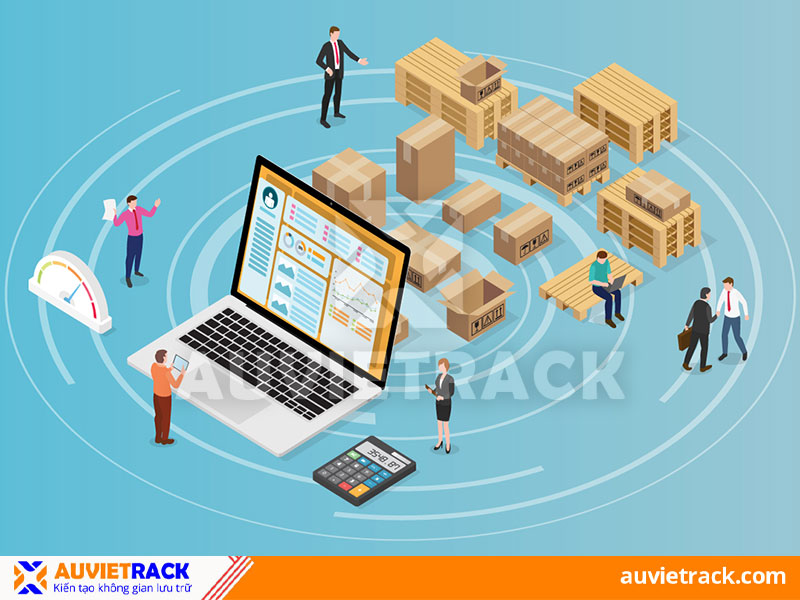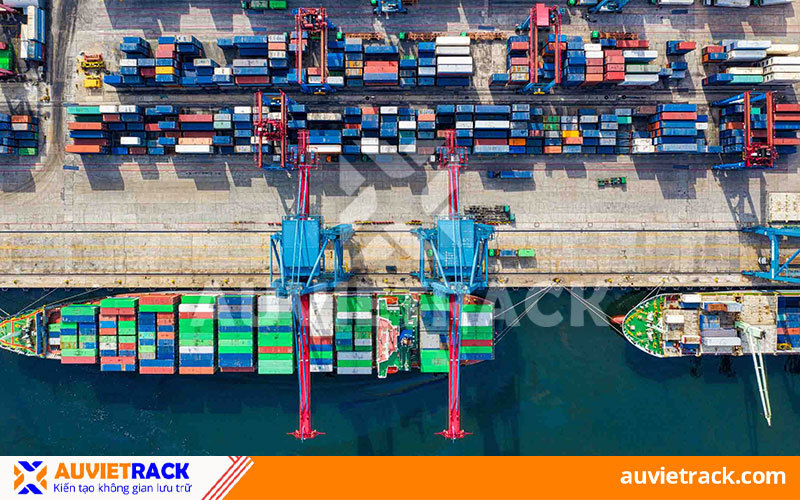What is Logistics Management? Activities in Logistics Management
The logistics field is receiving more and more attention today because the benefits it brings to businesses are huge. However, to operate a complete logistics system, businesses need to learn deeply about logistics management. So what is logistics management? What do logistics management activities include? Let's find out with Au Viet Rack in this article!
What is logistics management?
Logistics management is the management of all aspects of logistics such as planning, implementation, control and forecasting for storage and transportation of goods. Logistics management needs to promptly capture information about activities and other relevant information from the source of supply to the end user.
Building a professional logistics management plan to help optimize logistics costs while still ensuring product quality and good user experience is always the goal of every business. Thanks to that, logistics costs will also be significantly reduced, reducing the cost burden for buyers as well as contributing to increased profits for businesses.
 Effective logistics management helps increase profits for businesses
Effective logistics management helps increase profits for businesses
Activities in logistics management
Customer service
Customer service is the accompanying service to increase customer experience, creating added value so that customers feel they receive more than the cost they spend to use products and services. This service usually takes place between three parties: the supplier, the customer and a third party who may be a contractor or broker.
Customer service is a great way to retain customers, make a good impression, and increase loyal customers. To achieve high efficiency, businesses only need to add a number of small services with economical costs but are useful to customers. They will feel that the accompanying service has significant value, and the business will not have to waste much money on customer service.
 Customer service brings more loyal customers
Customer service brings more loyal customers
Information system
An information system is a network for exchanging information across all departments, divisions and other activities being managed by the organization. This system includes internal information (business, customers, suppliers,...), information related to each functional department (technical logistics, accounting, production management, marketing,...) , information at each stage in the supply chain (warehousing, transportation,...). Strict information control will help promptly grasp operational status, plan implementation progress and early detection of shortcomings, thereby taking timely remedial measures.
Thanks to the outstanding development of technology, networks and computers are increasingly improved and software to support logistics management is also born. When technology is effectively applied to the information system, management will become faster and less prone to errors.
 The information system needs to be unified and continuously updated
The information system needs to be unified and continuously updated
Reserves in logistics management
Reserves are always necessary in the product production process to meet market supply. At each stage of production, a part of the products and raw materials at that stage is accumulated to serve the continuous, uninterrupted remanufacturing process. Good reserve management will help businesses respond promptly to unusual fluctuations in the market, such as a sudden increase in demand that causes businesses to not be able to produce in time or a decrease in demand that causes goods to be stuck.
 Reserves help the production process not be interrupted
Reserves help the production process not be interrupted
Materials management
Raw materials play a very important role in the production process and are inputs to the supply chain. To produce quality products, it is necessary to have a good and stable source of materials. Price
The composition of the product also depends a lot on the source of materials because if the production materials are expensive or the price suddenly increases, it will cause difficulties for businesses. The increase in raw material costs leads to an increase in product production costs. If finished products sold outside the market increase in price, purchases will decrease and customers may switch to using competitors' products. A shortage of raw materials will also cause delays in production or may have to stop production, seriously reducing revenue.
Therefore, businesses need to find the most reputable raw material suppliers, with abundant sources of goods, stable in quantity and quality. Furthermore, it is necessary to have contact with several other suppliers in case the current supplier has problems.
For available materials, businesses also need to check regularly to ensure they are still usable. Material resource management planning helps businesses be more flexible when production problems arise.
Transportation in logistics management
In order for all production and consumption activities of a business to run smoothly, of course, transportation is indispensable. Smart transportation management helps shorten many redundancy periods, goods will be moved to the point of consumption faster, saving fuel and costs. Thereby increasing the quality of customer experience and enhancing the competitive position of businesses in the market.
 Transportation is the soul of logistics management
Transportation is the soul of logistics management
Warehousing in logistics management
Warehouse is the place to store all of a business's inventory including supplies, raw materials, finished products and semi-finished products. Here, goods will be gathered, arranged, stored, preserved, and after the next shipment is planned, they will be packaged and moved to another place. Therefore, warehouses are considered an important part of logistics, not only helping to preserve the quality of goods, reserve supplies and raw materials, but also helping businesses strictly control all information about the status of goods. status, date of import, expiry date, location of shipments.
 Warehousing helps businesses have time to plan allocation for shipments
Warehousing helps businesses have time to plan allocation for shipments
Cost management
Each activity in logistics requires certain costs to operate. Higher costs will create a greater burden for businesses, increasing the cost of each product. When it reaches the buyer, it will reduce its appeal because the product is priced higher than its competitors. On the contrary, inappropriately cutting many types of costs will increase costs in other stages, or reduce the logistics process and reduce product quality. Therefore, cost management is very important, determining whether supply chain management is truly effective or not. Businesses should have a plan to forecast the necessary costs in advance and synthesize them to consider minimizing the payment for each step without affecting other aspects.
 Cost management helps optimize costs for businesses
Cost management helps optimize costs for businesses
Above is the entire content of basic logistics management today. To operate effectively, businesses will have to take care of many things, so you can consider hiring outside professional logistics units. Smart logistics management not only reduces costs for businesses but also improves the quality of customer experience.
